The Well-Tempered Ear
The Madison Symphony Orchestra seeks matching funds as it launches a musicians’ relief fund to reach $355,000 by Nov. 5
1 Comment
PLEASE HELP THE EAR. IF YOU LIKE A CERTAIN BLOG POST, SPREAD THE WORD. FORWARD A LINK TO IT OR, SHARE IT or TAG IT (not just “Like” it) ON FACEBOOK. Performers can use the extra exposure to draw potential audience members to an event. And you might even attract new readers and subscribers to the blog.
By Jacob Stockinger
The Madison Symphony Orchestra (MSO, below in a photo by Peter Rodgers) has announced that a Musicians’ Relief Fund has been established with the goal of securing $355,000 to cover 100% of the orchestra payrolls for the canceled September through December 2020 subscription concerts.
This initiative is in addition to the compensation already provided to its musicians for canceled services from April 2020 to date.
To launch the fund, the MSO Board of Directors has committed current Symphony resources to guarantee 52% of the $355,000 total — $184,000 — and has informed the orchestra that the September and October orchestra payrolls will be paid in full.
MSO is seeking community support to help us raise another $171,000 to assure the orchestra’s compensation for the canceled November and December 2020 subscription concerts.
All contributions to this effort will directly support the musicians. An Anonymous Donor has launched the appeal with a $50,000 lead gift. The campaign seeks to raise the additional funds by Nov. 5, 2020.
All contributions to the MSO Musicians’ Relief Fund are tax-deductible and will be used for musicians’ compensation.
Donations can be mailed to the Madison Symphony Orchestra, 222 W. Washington Ave., Suite 460, Madison WI, 53703.
An online donation form is found at madisonsymphony.org/relief-gift.
To contribute gifts of appreciated stock or to discuss other options, contact Jeff Breisach, Manager of Individual Giving, at jbreisach@madisonsymphony.org.
“The 91 members of the Symphony are a core cultural asset of the greater Madison community,” said MSO Board President Ellsworth Brown (below). “We are committed to doing all we can to assist them through the challenges of the coronavirus pandemic.”
“While some MSO musicians have other day jobs, many rely heavily on the wages they earn performing with this Symphony, as well as other orchestras and ensembles in the region,” said MSO Executive Director Rick Mackie (below). “The cancellations of services have caused stress and anxiety for our artists.”
The MSO has demonstrated support of its musicians since April of this year, compensating the orchestra for all canceled rehearsals and performances.
Generous donors, strong financial management and a federal Small Business Administration Paycheck Protection Loan enabled the Symphony to pay 100% of the orchestra payrolls for the April and May subscription concerts, the spring youth education programs, HeartStrings®, Madison Opera and Overture Presents engagements, and Concert on the Green.
These unexpected paychecks provided relief to the MSO staff and to our musicians (below, with music director and conductor John DeMain in a photo by Peter Rodgers) were forthcoming with their individual appreciation.
HERE ARE SAMPLES OF THE MUSICIANS OF THE MADISON SYMPHONY ORCHESTRA EXPRESSING THEIR GRATITUDE FOR COMPENSATION RELIEF
“I am very grateful that our organization values the health of its musicians and patrons yet also understands the financial difficulty imposed on musicians by being unable to work due to the pandemic. The MSO is a gem of an organization, and if you haven’t heard it enough lately, please let me reiterate my gratitude.”
“WOW! I am humbled to be a part of the Madison Symphony Orchestra. Thank you so much for valuing the musicians and honoring us with payment for cancelled rehearsals and performances. The news made me cry.”
“As someone who makes a living totally from teaching and playing, this has been an incredibly difficult time. I lost half of my students, because they do not want to study online, and of course, all gigs were cancelled. I am truly grateful to you for making this possible. You have no idea how much this will help not only financially, but mentally as well. THANK YOU!!!
Tags: #artsorganization, #BlogPost, #BlogPosting, #BoardofDirectors, #BoardPresident, #BrassSection, #ChamberMusic, #CityofMadison, #ClassicalMusician, #CommunityOutreach, #ConcertontheGreen, #ConcertSeason, #CoronavirusPandemic, #COVID-19, #DayJob, #EllsworthBrown, #ExecutiveDirector, #FacebookPost, #FacebookPosting, #FinancialManagement, #FundraisingCampaign, #HeartStrings, #HomeWebsite, #JacobStockinger, #JeffBreisach, #JohnDeMain, #LeadGift, #MadisonOpera, #MadisonSymphonyOrchestra, #MadisonWisconsin, #MeadWitterSchoolofMusic, #MentalHealth, #MusicDirector, #MusicEducation, #Musicfaculty, #OperaMusic, #OvertureCenter, #OverturePresents, #PaidinFull, #PercussionSection, #ReliefFund, #RickMackie, #StringSection, #SubscriptionConcert, #ThankYou, #TheEar, #TheUW, #UniversityofWisconsin-Madison, #YouthConcerts, #YouTubevideo, anonymous, anxiety, appeal, appreciated, appreciation, April, artists, Arts, asset, audience, blog, Board of Directors, brass, campaign, cancel, canceled, cancellation, cause, Cello, challenge, challenge grant, Chamber music, Classical music, classicalmusic, commit, community, community outreach, compensate, compensation, composer, Concert, Concert on the Green, conductor, contact, contribute, contribution, core, coronavirus, cover, Cry, cultural, current, date, day, day job, December, dicculty, difficulty, directly, discuss, donation, donor, donors, earn, Education, effort, Ellsworth Brown, engagement, establish, Executive director, express, expressing, Facebook, financial, financial management, form, forthcoming, forward, fund, Fundraising, gem, generous, gifts, gig, gigs, giving, goal, grateful, gratitude, half, Health, Heart Strings, heavily, home website, honor, humble, humbled, impose, incredile, individual, infor, initiative, Jacob Stockinger, Jeff Breisach, job, John DeMain, launch, lead, like, link, living, loan, lose, Madison, Madison Opera, Madison Symphony Orchestra, make, management, manager, May, Mead Witter School of Music, member, mental, Mental health, MSO, Music, Music director, Music education, music faculty, Musician, musicians, news, online, opera, option, options, Orchestra, organization, outreach, Overture Center, Overture Center for the Arts, Overture Presents, paid, paid in full, pandemic, patron, paycheck, payment, payroll, percussion, performance, performer, performing, play, playing, possible, post, posting, President, protection, provide, region, rehearsal, reiterate, relief fund, rely, resources, rest, Rick Mackie, sample, Season, secure, seek, September, services, share, someone, staff\, stock, stress, strong, students, study, subscriber, support, symphony, tag, tax-deductible, teaching, thank you, The Ear, time, totally, understand, unexpected, United States, University of Wisconsin-Madison School of Music, University of Wisconsin–Madison, UW, UW-Madison, value, Viola, Violin, virtual, virtul, wages, Website, Wisconsin, work, Youth, Youth Concerts
Classical music: UW-Madison piano virtuoso Christopher Taylor performs a free virtual recital of impromptus by Schubert and Scriabin this Wednesday afternoon
5 Comments
PLEASE HELP THE EAR. IF YOU LIKE A CERTAIN BLOG POST, SPREAD THE WORD. FORWARD A LINK TO IT OR, SHARE IT or TAG IT (not just “Like” it) ON FACEBOOK. Performers can use the extra exposure to draw potential audience members to an event. And you might even attract new readers and subscribers to the blog.
A note from The Ear: Thank you to the many blog followers who left a message of encouragement when I had computer troubles last week. The problem seems to be solved, at least temporarily. And I am healthy, despite the fears that some of you expressed that I was covering for coming down with the coronavirus virus or Covid-19.
By Jacob Stockinger
A friend has passed along the following note from Christopher Taylor, the piano virtuoso who won a bronze medal at the Van Cliburn International Piano Competition and who has been teaching for many years at the UW-Madison Mead Witter School of Music.
Taylor (below) writes:
“Despite having my performance schedule ravaged, like everyone else, I do actually have one positive morsel of news to relay regarding a “recital” coming up in the near future, which I wanted to you know about.
“It is being hosted by the Chautauqua Institution, where I’ve performed a few times in the past. Unsurprisingly, they’ve had to switch to an online format this summer.
“Just last week I made the actual recording, playing four impromptus by Scriabin, and Four Impromptus, Op. 142, by Schubert in the Mead-Witter Foundation Concert Hall (below, with the UW Choral Union and UW Symphony Orchestra), which seemed like a propitious setting. (Editor’s note: In the YouTube video at the bottom, you can hear the third impromptu in the set by Schubert performed by Vladimir Horowitz during his historic 1986 recital in Moscow.)
“Under the circumstances I think the video turned out pretty well. The actual streaming, which will include the 45 minutes of music plus a little live interview before and afterwards, takes place this Wednesday – Aug. 5 – at 3 p.m. CDT.
You can get there by way of the following link: https://porch.chq.org/ue/event/6518/
“Apparently there is a brief registration form one has to fill out prior to viewing the show, but basically getting in should be a free and painless process for all and sundry.
“Hope you get a chance to join in, and that you enjoy it!”
Tags: #AlexanderScriabin, #BlogPost, #BlogPosting, #BronzeMedal, #ChautauquaInstitution, #ChristopherTaylor, #ClassicalRecording, #ConcertPianist, #CoronavirusPandemic, #COVID-19, #FacebookPost, #FacebookPosting, #FacultyMember, #FillOut, #FranzSchubert, #HamelMusicCenter, #JacobStockinger, #MeadWitterFoundationConcertHall, #MeadWitterSchoolofMusic, #MoscowRussia, #Musicfaculty, #MusicTeacher, #OnlineConcert, #PerformingArts, #PianoMusic, #PianoVirtuoso, #RecordedMusic, #RegistrationForm, #StreamingService, #ThankYou, #TheCliburn, #TheEar, #UniversityofWisconsin-Madison, #UWChoralUnion, #UWSymphonyOrchestra, #VanCliburn, #VanCliburnInternationalPianoCompetition, #VirtualConcert, #VladimirHorowitz, #YouTubevideo, Alexander Scriabin, all, Arts, audience, basic, blog, bronze medal, bronze medalist, case, chance, Chautauqua Institution, Christopher Taylor, Classical music, composer, computer, coronavirus, encouragement, enjoy, everyone, express, Facebook, fear, fill out, follower, form, forward, Franz Schubert, free, friend, future, Hamel Music Center, healthy, historic, host, hosted, impromptu, interview, Jacob Stockinger, like, link, live, Madison, Madison Symphony Orchestra, Mead Witter School of Music, message, morsel, Moscow, Music, music faculty, news, not, online, operformer, Orchestra, pandemic, past, perform, performance, Performing arts, Pianist, Piano, piano music, positive, posting, posy, prior, problem, process, propitious, recital, recorded music, recording, registration, relay, Russia, schedule, Schubert, Scriabin, setting, share, show, solve, stream, streaming, sundry, swith, symphony, tag, teach, temporarily, thank you, The Cliburn, The Ear, trouble, United States, University of Wisconsin-Madison School of Music, University of Wisconsin–Madison, UW, UW Choral Union, UW Symphony Orchestra, UW-Madison, Van Cliburn, Van Cliburn International Piano Competition, video, view'viewing, virtual, virtuoso, Vladimir Horowitz, Wisconsin, YouTube
Classical music: Today is World Piano Day. Why do you love the piano? Do you have a favorite piano piece? A favorite pianist? Something to say about taking piano lessons? Want to thank your piano teacher? The Ear wants to hear
5 Comments
PLEASE HELP THE EAR. IF YOU LIKE A CERTAIN BLOG POST, SPREAD THE WORD. FORWARD A LINK TO IT OR, SHARE IT or TAG IT (not just “Like” it) ON FACEBOOK. Performers can use the extra exposure to draw potential audience members to an event. And you might even attract new readers and subscribers to the blog.
By Jacob Stockinger
Today – Saturday, March 28, 2020 – is World Piano Day.
The international celebration is fitting because today happens to be Day 88 of the year – a timely parallel to the fact that most pianos have 88 keys.
Here is a link to the official website with a list of international events and other links to playlists of piano music on SoundCloud and Spotify: https://www.pianoday.org
Here is a link to the virtual live streaming piano festival — starting at 3 p.m. Central European Time (CET), which is 6 hours ahead of Central Daylight Time or at 9 a.m. CDT) — by the record label Deutsche Grammophon: https://www.udiscovermusic.com/classical-news/deutsche-grammophon-world-piano-day-livestream/
A lot of us took piano lessons.
So today seems like a good occasion to say something about the role of the piano in your life.
Why do you love the piano? The sound? The physical act of playing? The vast repertoire?
Maybe you want to mention a specific piano piece that made a difference in your life, as the Scherzo No. 3 in C-sharp minor, Op. 39, by Chopin did for The Ear. (You can hear Arthur Rubinstein play it in the YouTube video at the bottom.)
Maybe you have a favorite piano piece or piano composer you like to listen to?
Maybe you wished you had stopped lessons earlier or continued them longer?
Would you like to say thank you to your piano teacher?
Maybe you have memories – good or bad — of a recital you gave?
Who is your favorite pianist from the past – maybe Van Cliburn or Vladimir Horowitz (below), Sviatoslav Richter or Dame Myra Hess?
Which pianist today would you recommend to others? Daniil Trifonov or Haochen Zhang, Simone Dinnerstein (below) or Maria Joao Pires?
Those suggestions hardly exhaust the possibilities. So be creative and leave a Comment with a YouTube link, if possible.
The Ear wants to hear.
Tags: #ArthurRubinstein, #AsianMusicians, #BlogPost, #BlogPosting, #CentralDaylightSavingTime, #CentralDaylightTime, #CentralEuropeanTime, #DaniilTrifonov, #DeutscheGrammophon, #FacebookPost, #FacebookPosting, #FredericChopin, #HaochenZhang, #HomeWebsite, #HowardGoodall, #InternationalPianoDay, #LiveStreaming, #MariaJoaoPires, #MyraHess, #People'sRepublicofChina, #PianoDay, #PianoLessons, #PianoMusic, #PIanoTeacher, #RecordingLabels, #Russianpianist, #SimoneDinnerstein, #SouthKorea, #SviatoslavRichter, #ThankYou, #TimeZone, #VanCliburn, #VladimirHorowitz, #YouTubevideo, 88, ahead, American, Arthur Rubinstein, Arts, Asia, audience, Bach, Baroque, Beethoven, blog, celebration, Central Daylight Saving Time, Central Daylight Time, Central European Times, China, Chinese, Chopin, Chopin Scherzo, Classical music, comment, composer, Concert, concerto, creative, Daniil Trifonov, day, daylight, Deutsche Grammophon, DG, difference, Dinnerstein, early, Europe, European, event, Facebook, favorite, festival, first, fitting, forward, Frédéric Chopin, good, Haochen Zhang, hear, home website, Horowitz, hour, international, International Piano Day, Jacob Stockinger, Japan, Johann Sebastian Bach, Johannes Brahms, Korea, Korean, label, later, lessons, life, like, link, listen, live, livestream, Love, Ludwig van Beethoven, Madison, march, Maria Joao Pires, Masterpiece Theatre, memories, memory, mention, Music, Myra Hess, official, parallel, performer, Piano, Piano Day, piano lessons, piano music, piano teacher, piece, playlist, Portugal, Portuguese, possibility, post, posting, recital, record, repertoire, repertory, Richter, role, Russia, Russian, Saturday, say, Scherzo, share, Simone Dinnerstein, Sonata, Sound, SoundCloud, South Korea, specific, Spotify, stream, streaming, Sviatoslav Richter, tag, Teacher, thank, thank you, thanks, time zone, timely, today, United States, University of Wisconsin-Madison School of Music, University of Wisconsin–Madison, Van Cliburn, vast, virtual, Vladimir Horowitz, Website, why, Wisconsin, world, World Piano Day, worldwide, year, your, YouTube, Zhang
Classical music: Barbara DeMain — wife of Madison Symphony Orchestra music director and Madison Opera artistic director John DeMain — has died
9 Comments
PLEASE HELP THE EAR. IF YOU LIKE A CERTAIN BLOG POST, SPREAD THE WORD. FORWARD A LINK TO IT OR, SHARE IT or TAG IT (not just “Like” it) ON FACEBOOK.
By Jacob Stockinger
Barbara DeMain (below) — the wife of John DeMain, the music director of the Madison Symphony Orchestra and the artistic director of the Madison Opera — died Thursday.
A member of the orchestra sent the following note:
“Earlier today, we received some very tragic news from the orchestra office.
“Barbara DeMain passed away earlier this morning after becoming ill late last evening.
“She was admitted to a hospital last evening while John was in rehearsal with the opera.
“Their daughter Jenny (below top on right, with her father) drove to Madison from Chicago and she and John (below bottom left, with Barbara) were with her all night until she passed.
“This is very tragic news, and we’re all wanting to reach out in any way we can to support the DeMain family. Once plans are made for a memorial or funeral, we’ll send the information out as quickly as possible.”
“Thank you all for keeping them in your thoughts and prayers.”
The Ear has heard that John DeMain plans on conducting the opera this weekend and the three MSO performances next weekend.
But he has not been able to verify that or other details about Barbara, who was born in Germany as Barbara Dittman, and met John in Houston, where he was the director of the Houston Grand Opera, in 1991. They married soon after meeting, and have been in Madison for 26 years. Barbara was a political activist and an arts consultant.
The Ear will pass along more details as he learns them.
Below — dedicated to Barbara DeMain — is a YouTube video of the “Pie Jesu” movement from the Requiem by Gabriel Faure.
Rest in peace, Barbara.
Tags: #ArtisticDirector, #BarbaraDeMain, #BlogPost, #BlogPosting, #ChoralMusic, #ClassicalMusician, #FacebookPost, #FacebookPosting, #Forward-Looking, #HoustonGrandOpera, #husband-and-wife, #JacobStockinger, #JenniferDeMain, #JohnDeMain, #MadisonOpera, #MadisonSymphonyOrchestra, #MusicDirector, #OvertureCenter, #PassAway, #PieJesu, #ThankYou, #TheEar, #ThoughtsandPrayers, #Thursdaymorning, #VocalMusic, #Wife-and-Husband, #YouTubevideo, admitted, Artistic director, Arts, Barbara DeMain, become, blog, Chicago, choral music, Classical music, classicalmusic, composer, Concert, conduct, conductor, dead, death, dedicate, die, died, evening, Facebook, Family, father, forward, funeral, Germany, Hospital, Houston, Houston Grand Opera, husband, ill, Jacob Stockinger, Jennifer DeMain, John DeMain, like, link, Madison, Madison Opera, Madison Symphony Orchestra, marry, meeting, memorial, morning, Mother, Music, Music director, news, night, office, opera, Orchestra, Overture Center, pass away, passed, peaceful, Pie Jesu, post, posting, prayer, prayers, rehearsal, Requiem, rest, share, support, symphony, tag, Texas, thank you, The Ear, thought, thoughts, Thursday, Tragic, United States, vocal music, wife, Wisconsin, years, YouTube
Classical music: Legendary Austrian pianist and scholar Paul Badura-Skoda dies at 91. In the 1960s, he was artist-in-residence at the UW-Madison School of Music
4 Comments
IF YOU LIKE A CERTAIN BLOG POST, PLEASE SPREAD THE WORD. FORWARD A LINK TO IT OR, SHARE IT or TAG IT (not just “Like” it) ON FACEBOOK. Performers can use the extra exposure to draw potential audience members to an event. And you might even attract new readers and subscribers to the blog.
By Jacob Stockinger
Paul Badura-Skoda, the celebrated Austrian pianist who was equally known for his performances and his scholarship, and who was artist-in-residence at the UW-Madison in the mid-1960s until 1970, died this past Tuesday at 91.
A Vienna native, Badura-Skoda was especially known for his interpretations of major Classical-era composers who lived and worked in that city including Haydn, Mozart, Beethoven and Schubert.
He was the only pianist to have recorded the complete sonatas by those composers on both the modern piano and the fortepiano, the appropriate period instrument.
If memory serves, Badura-Skoda’s last appearances in Madison were almost a decade ago for concerts in which he played: the last piano sonatas of Haydn, Mozart, Beethoven and Schubert; a Mozart piano concerto with the UW Chamber Orchestra; and a solo recital of Bach, Mozart, Schubert and Chopin at Farley’s House of Pianos.
But he also performed and recorded Bach, Chopin and Schumann among others. And Badura-Skoda was also renowned as a conductor, composer, editor and teacher.
You can find many of his recordings and interviews on YouTube. Normally, this blog uses shorter excerpts. But the legendary Paul Badura-Soda is special. So in the YouTube video at the bottom you can hear Badura-Skoda’s complete last recital of Schubert (Four Impromptus, D. 899 or Op. 90), Schumann (“Scenes of Childhood”, Op. 15) and Mozart (Sonata in C Minor, K. 457). He performed it just last May at the age of 91 at the Vienna Musikverein, where the popular New Year concerts take place.
Here are links to several obituaries:
Here is one from the British Gramophone Magazine:
Here is one from WFMT radio station in Chicago, which interviewed him:
https://www.wfmt.com/2019/09/26/pianist-paul-badura-skoda-dies-at-age-91/
Here is one, with some surprisingly good details, from Limelight Magazine:
https://www.limelightmagazine.com.au/news/paul-badura-skoda-has-died/
And here is his updated Wikipedia entry:
https://en.wikipedia.org/wiki/Paul_Badura-Skoda
But you will notice a couple of things.
One is that The Ear could not find any obituaries from such major mainstream media as The New York Times, the Wall Street Journal and The Washington Post. But each had many other feature stories about and reviews of Badura-Skoda’s concerts over the years in their areas.
The other noteworthy thing is that none of the obituaries mentions Badura-Skoda’s years at the University of Wisconsin-Madison School of Music in the 1960s, where he helped to raise the profile and prestige of the School of Music. Getting Badura-Skoda to join the university was considered quite an unexpected coup.
So here are two links to UW-Madison press releases that discuss that chapter of his life and career.
Here is an archival story from 1966 when Badura-Skoda first arrived at the UW-Madison:
And here is a press release that came from the UW-Madison News Service eight years ago on the occasion of one of Badura-Skoda’s many visits to and performances in Madison:
https://news.wisc.edu/writers-choice-madison-welcomes-badura-skoda-again-and-again/
Rest in Peace, maestro, and Thank You.
It would be nice if Wisconsin Public Radio paid homage with some of Badura-Skoda’s recordings since a complete edition was issued last year on the occasion of his 90th birthday.
If you wish to pay your own respects or leave your memories of Paul Badura-Skoda and his playing, please leave something in the comment section.
Tags: #AustrianComposer, #BaroqueMusic, #BlogPost, #BlogPosting, #ChamberMusic, #ChamberOrchestra, #Classicalera, #ClassicalMusc, #CompactDisc, #FacebookPost, #FacebookPosting, #Farley'sHouseofPianos, #FranzJosephHaydn, #FranzSchubert, #FredericChopin, #GramophoneMagazine, #HistoricallyInformedPerformancePractices, #JohannSebastianBach, #LimelightMagazine, #LudwigVanBeethoven, #MainstreamMedia, #ModernPiano, #MusicalInterpretation, #MusicCritic, #MusicCriticism, #MusicReview, #NewYear, #PaulBadura-Skoda, #PeriodInstruments, #PianoConcerto, #PianoMusic, #PianoSonata, #PressRelease, #RadioStation, #RestinPeace, #RobertSchumann, #ScenesofChildhood, #SchoolofMusic, #ThankYou, #The1960s, #TheEar, #TheFortepiano, #TheNewYorkTImes, #TheWallStreetJournal, #TheWashingtonPost, #UniversityofWisconsin-Madison, #ViennaMusikverein, #WallStreetJournal, #WFMTRadioStation, #Wikipediabiography, #Wikipediaentry, #WisconsinPublic Radio, #WolfgangAmadeusMozart, #YouTubevideo, 1960s, artist-in-residence, Arts, audience, Austria, Bach, Baroque, Beethoven, birthday, blog, British, CDs, celebrated, Chamber music, chamber orchestra, Chicago, Chopin, Classical, Classical music, comment, Compact Disc, complete, composer, Concert, concerto, conductor, coup, criticism, death, decade, details, Deutsch number, die, died, edition, editor, English, Facebook, Farley's House of Pianos, feature story, fortepiano, forward, Franz Joseph Haydn, Franz Schubert, Frédéric Chopin, good, Gramophone, Haydn, historically informed performance practices, impromptu, instrument, interpretation, interview, Jacob Stockinger, Johann Sebastian Bach, Kinderszenen, last, legend, legendary, like, Limelight magazine, link, live, Ludwig van Beethoven, Madison, Maestro, magazine, mainstream, mainstream media, major, media, memories, modern piano, Mozart, Music, native, New Year, New York City, news, NPR, obituary, occasion, Orchestra, Paul Badura-Skoda, pay, performance, performer, period instruments, Pianist, Piano, Piano concerto, piano music, Piano sonata, popular, post, posting, press release, prestige, profile, Radio, radio station, reader, recital, record, recording, renown, respect, rest in peace, review, RIP, Robert Schumann, Scenes of Childhood, scholar, scholarship, School of Music, Schumann, section, share, Sonata, station, tag, Teacher, thank you, The Ear, The New York Times, The Washington Post, UK, unexpected, United States, university, University of Wisconsin-Madison School of Music, University of Wisconsin–Madison, updated, UW, UW-Madison, UW-Madison School of Music, Vienna, Vienna Musikverein, visit, Wall Street Journal, Wikipedia, Wisconsin, wisconsin public radio, WMFT, Wolfgang Amadeus Mozart, work, WPR, YouTube
Classical music: The Middleton Community Orchestra honors retired music critic John W. Barker with a special performance of Brahms and a season dedication
7 Comments
IF YOU LIKE A CERTAIN BLOG POST, PLEASE SPREAD THE WORD. FORWARD A LINK TO IT OR, SHARE IT or TAG IT (not just “Like” it) ON FACEBOOK. Performers can use the extra exposure to draw potential audience members to an event. And you might even attract new readers and subscribers to the blog.
By Jacob Stockinger
How does an individual musician or musical group pay tribute and say thank you to a critic?
By performing, of course.
And that is exactly what 30 members of the Middleton Community Orchestra did, playing under guest conductor Kyle Knox (below top), last Friday night for the veteran music critic John W. Barker (below bottom).
The orchestra performed for him at the downtown Capitol Lakes Retirement Community, near the Capitol Square, where the ailing Barker lives with his wife Margaret.
Because of space limitations, word of the special performance never went public. But the large basement room was packed with affectionate and respectful fans and friends.
The MCO members played the lyrical and sunny Serenade No. 1, Op. 11, of Johannes Brahms. (You can hear the opening movement of the Serenade by Brahms in the YouTube video at the bottom.)
The orchestra also announced that it would dedicate its upcoming 10th anniversary season to Barker as a gesture of thanks for all he has done over the past nine years to promote the mostly amateur orchestra — which opens its new season on Wednesday, Oct. 9.
“I’ve known this piece most of my life,” said Barker, who soon turns 86 and who started reviewing in his teens. “It’s lots of fun.”
And so was the unusual honor.
“An orchestra paying tribute to a critic? It’s unprecedented,” Barker quipped, as both he and the audience laughed. Barker also quoted the Finnish composer Jean Sibelius who once said, “A statue has never been erected in honor of a critic.”
After the 40-minute performance, Barker spoke briefly to the players and audience.
“The job of the critic,” he said, “is to stimulate performers to play up to their best standards and to give readers some background and context. Being critical doesn’t mean being negative, although at times I have made some negative comments. But you never have to be nasty. I guess I’ve succeeded,” he said looking around at the players and the public, both of whom generously applauded his remarks.
Barker’s list of personal accomplishments is impressive. He has written local music reviews for The Capital Times, Isthmus and this blog.
But he is a participant as well as a critic. He has sung in many choirs, including 47 years in the one at the local Greek Orthodox Church, and has performed with the Madison Opera. He directed Gilbert and Sullivan productions for the Madison Savoyards.
Barker is an emeritus professor of Medieval history at the University of Wisconsin-Madison, which may help to explain his general taste for the traditional. He also is a well-known classical music critic, with a national reputation, who has written for 63 years for the American Record Guide. For many years, he hosted an early music radio show on Sunday mornings for WORT-FM 89.9.
He also worked with Opera Props, the support group for University Opera, and was a member of the Board of Advisors for the Madison Early Music Festival. And he frequently gave pre-concert lectures in Madison. He has published two books on Wagner and written a definitive history of the Pro Arte Quartet.
But this time even the voluble Barker had to admit, “I am grateful and thankful. I am very moved, even floored. But I’m afraid I’m finally at a loss for words.”
You can leave your own words of tribute in the Comment section.
To see the full “Barker season” schedule for the Middleton Community Orchestra and to read many of Barker’s past reviews of the MCO, go to: http://middletoncommunityorchestra.org
Thank you, John, for all you have done to enrich the cultural and musical life of Madison!
Tags: #AmateurMusicians, #AmericanRecordGuide, #BlogPost, #BlogPosting, #BoardofAdvisors, #CapitalLakesRetirement Community, #CapitolLakes, #CapitolSquare, #CapTimes, #ChamberMusic, #ChoralMusic, #CriticalAcclaimed, #EmeritusProfessor, #FacebookPost, #FacebookPosting, #FinnishComposer, #Fridaynight, #GilbertandSullivan, #GreekOrthodoxChurch, #GuestArtist, #HomeWebsite, #IsthmusNewspaper, #JeanSibelius, #JohannesBrahms, #JohnW.Barker, #KyleKnox, #MadisonEarlyMusicFestival, #MadisonOpera, #MadisonSavoyards, #MedievalHistory, #MiddletonCommunityOrchestra, #MusicCritic, #MusicReview, #NationalReputation, #OperaProps, #OrchestralMusic, #ProArteQuartet, #RichardWagner, #SpecialPerformance, #StringQuartet, #SundayMorning, #ThankYou, #TheCapitalTimes, #UniversityofWisconsin-Madison, #UniversityOpera, #WORT-FM89.9, accomplishment, admit, affectionate, ailing, amateur, American Record Guide, anniversary, applaud, audeience, audience, background, basement, blog, board, Board of Advisors, Book, Cap Times, Capitol Lakes, Capitol Lakes Retirement Community, Capitol Square, Chamber music, choirs, choral music, church, Classical music, classicalmusic, comments, composer, conductor, context, critic, cultural, culture, dedicate, downtown, Early music, earlymusic, emeritus professor, enrich, erect, Facebook, fan, festival Madison Early Music Festival, Finnish composer, forward, Friday, Friday night, friend, fun, generous, gesture, Gilbert and Sullivan, grateful, gratitude, Greek Orthodox Church, group, guest artist, History, home website, honor, host, impressive, individual, Isthmus, Jean Sibelius, job, Johannes Brahms, John W. Barker, Kyle Knox, laugh, lecture, life, like, limitation, link, list, local, loss, lyrical, Madison, Madison Opera, Madison Savoyards, Medieval, member, MEMF, Middleton Community Orchestra, morning, moved, music critic, music review, musical, Musician, nasty, national, negative, Newspaper, night, opera, Opera Props, Orchestra, orchestral music, past, pay, perform, performer, personal, piece, play, player, post, posting, pre-concert, Pro Arte Quartet, professor, promote, published, quip, quote, Radio, remarks, reputation, respectful, Retirement, Richard Wagner, room, schedule, Season, Serenade, share, show, sing, singer, space, special, special performance, standards, statue, stimulate, String quartet, sun, Sunday, sunny, tag, taste, teens, thank you, thankful, thankfulness, The Capital Times, traditional, tribute, university, University of Wisconsin–Madison, University Opera, unprecedented, unusual, UW-Madison, Veteran, voluble, Wagner, Website, well-known, Wisconsin, words, WORT-FM 89.9, written, years
Classical music: The Karp family turns in a memorable and moving 40th annual Labor Day concert that also took listeners back in time
4 Comments
IF YOU LIKE A CERTAIN BLOG POST, PLEASE SPREAD THE WORD. FORWARD A LINK TO IT OR, SHARE IT or TAG IT (not just “Like” it) ON FACEBOOK. Performers can use the extra exposure to draw potential audience members to an event. And you might even attract new readers and subscribers to the blog.
By Jacob Stockinger
If you missed the free 40th annual Karp Family Labor Day Concert on Tuesday night in Mills Hall, you missed more than music. You missed the kind of event that makes for long and precious memories.
Sure, you can nitpick the program and the performers, who also included daughter-in-law violist Katrin Talbot (below right) and guest violinist Suzanne Beia (below left), who performs with the Pro Arte Quartet, the Madison Symphony Orchestra and the Wisconsin Chamber Orchestra.
You could ask, for example, which cello transcription worked better – the Violin Sonatina, Op. 100, by Dvorak or the Violin Sonata No. 10, Op. 96, by Beethoven. (The Ear votes for the Dvorak.)
And you could also ask which performer stood out the most. (The Ear thinks that is the great-grandmother and matriarch pianist Frances Karp playing in a Mozart piano quartet. At 90, Frances still possesses beautiful tone, the right volume and balance, and the necessary technical chops. They say there is nowhere to hide in Mozart, but Frances Karp did need any place to hide. Her Mozart was, simply, sublime.)
But, in the end, those kinds of questions and critiques really seem beside the bigger point.
What mattered most was the sheer enjoyment of hearing a family perform live some wonderful music by Mozart, Beethoven, Dvorak and Schumann (the passionate Adagio and Allegro in A-flat Major, Op. 70, played by Lynn Harrell in the YouTube video at the bottom).
And what mattered more as The Ear thought about it was the kind of time travel the concert involved.
There were two kinds, really.
One had to do with having watched the various performing Karps – clearly Madison’s First Family of Music – over four decades. It was touching to realize that The Ear has seen cellist Parry Karp, to take one example, evolve from son to husband to father to grandfather. And through it all, the music remained.
In today’s culture of short attention spans, that kind of constancy and persistence — through the inevitable ups and downs of 40 years — is something to celebrate, admire and cherish.
Time travel happened in another way too.
The Ear first watched Frances Karp accompany her son Parry (below top), then watched son Christopher Karp accompany his older brother Parry (below bottom). And it called to mind the days when – before radio or recordings – families made music together in their homes.
Historically, that’s how many great composers and much great music got started. Wolfgang Amadeus Mozart and Felix Mendelssohn played piano duets with their gifted sisters, Nannerl and Fanny, respectively. Jean Sibelius played duets with his sister. And there were surely many more. Hausmusik, or “house music,” played a vital role.
And this is how it felt at the traditional Karp family concert. We felt invited into a loving, close and gifted musical family who were performing as much for each other as for the audience.
We could use more of that.
The musical and the familial mixed so beautifully, so convincingly, that all one can say after the event is “Thank you” with the ardent wish to hear them again next year.
Tags: #AntoninDvorak, #AttentionSpan, #BlogPost, #BlogPosting, #BlogReview, #ChamberMusic, #ChristopherKarp, #FacebookPost, #FacebookPosting, #FannyMendelssohn, #FelixMendelssohn, #FirstFamily, #FrancesKarp, #HouseMusic, #JeanSibelius, #KarpFamily, #KatrinTalbot, #LaborDay, #LiveMusic, #LudwigVanBeethoven, #LynnHarrell, #MadisonSymphonyOrchestra, #MillsHall, #MusicReview, #NannerlMozart, #ParryKarp, #PianoAccompaniment, #PianoAccompanist, #PianoQuartet, #ProArteQuartet, #RobertSchumann, #SuzanneBeia, #ThankYou, #TheEar, #TimeTravel, #UniversityofWisconsin-Madison, #UpsandDowns, #ViolinSonata, #WisconsinChamberOrchestra, #WolfgangAmadeusMozart, #YouTubevideo, accompanist, accompany, adagio, admire, allegro, annual, Antonín Dvořák, ardent, ask, attention span, audience, balance, beautiful, Beethoven, blog, brother, celebrate, cellist, Cello, Chamber music, cherish, Christopher Karp, close, Concert, constancy, convincing, convincingly, critique, culture, daughter-in-law, decade, downs, duet, Dvorak, enjoyment, event, evolution, evolve, exposure, Facebook, familial, Family, Fanny Mendelssohn, father, Felix Mendelssohn, first family, forward, Frances Karp, free, gifted, grandfather, grandmother, Haus Musik, hausmusik, hide, historical, History, Holiday, Home, house music, husband, Jean Sibelius, Karp Family, Katrin Talbot, kind, Labor Day, like, link, listener, live, live music, long, Love, loving, Ludwig van Beethoven, Lynn Harrell, Madison Symphony Orchestra, matriarch, matter, memorable, memories, Mills Hall, miss, Mother, moving, Music, music review, musical, Nannerl Mozart, nitpick, nowhere, older, other, Parry Karp, Passion, passionate, performer, persistence, Pianist, Piano, Piano accompanist, Piano Quartet, place, play, Point, post, posting, precious, Pro Arte Quartet, program, Quartet, question, Radio, reader, recording, Recordings, Robert Schumann, share, short, sister, son, Sonata, sonatina, sublime, subscriber, Suzanne Beia, tag, technical, technique, thank you, The Ear, time, time travel, today, tone, tradition, traditional, transcription, travel, University of Wisconsin–Madison, ups, video, Viola, Violin, violinist, violist, volume, vote, watch, wish, Wolfgang Amadeus Mozart, wonderful, year, YouTube
Classical music: The Madison Early Music Festival announces the dates and theme of next year’s 21st annual festival
1 Comment
IF YOU LIKE A CERTAIN BLOG POST, PLEASE SPREAD THE WORD. FORWARD A LINK TO IT OR, SHARE IT or TAG IT (not just “Like” it) ON FACEBOOK. Performers can use the extra exposure to draw potential audience members to an event. And you might even attract new readers and subscribers to the blog.
By Jacob Stockinger
The Ear has received the following news update:
As things wind down after the 2019 Madison Early Music Festival (MEMF), we want to extend a big thank you to our visiting concert artists, lecturers and faculty, all participants enrolled in the workshops, those who volunteered, and the Friends of MEMF who provided coffee and treats every morning.
Thanks to the many concert and lecture attendees along with our promotional and financial supporters. We were pleased to welcome 103 registrants and over 2,800 people in attendance at our Concert Series, lectures, fringe concerts, and our dance event, Grand Tour Excursions.
Thank you to everyone who helped bring the Grand Tour to life during the 20th annual celebration of the Madison Early Music Festival! We look forward to seeing you July 11-18, 2020 for Music at the Burgundian Court. (You can sample some of the Burgundian court music in the YouTube video below.)
Tags: #BlogPost, #BlogPosting, #BurgundyFrance, #FacebookPost, #FacebookPosting, #FacultyMember, #GrandTour, #MadisonEarlyMusicFestival, #MeadWitterSchoolofMusic, #NewsUpdate, #RenaissanceMusic, #ThankYou, #UniversityofWisconsin-Madison, #YouTubevideo, annaul, announce, antendees, artists, Arts, attract, audience, blog, bring, Burgundy, choral music, Classical music, coffee, composer, Concert, court, dance, dates, Early music, event, everyone, excusion, exposure, Facebook, facuty, financial, forward, France, French, friends, fringe, Grand Tour, Jacob Stockinger, lecturer, life, like, link, Madison, Madison Early Music Festival, Mead Witter School of Music, morning, Music, news, Orchestra, performer, promotion, reader, registrants, Renaissance, series, share, spread, subscriber, supporter, tag, thank you, theme, thing, treats, United States, University of Wisconsin-Madison School of Music, University of Wisconsin–Madison, update, volunteer, word, YouTube
Classical music: Meet UW-Madison bassoonist Marc Vallon who performs with the Willy Street Chamber Players on Friday night
2 Comments
IF YOU LIKE A CERTAIN BLOG POST, PLEASE SPREAD THE WORD. FORWARD A LINK TO IT OR, SHARE IT or TAG IT (not just “Like” it) ON FACEBOOK. Performers can use the extra exposure to draw potential audience members to an event. And you might even attract new readers and subscribers to the blog.
By Jacob Stockinger
Who is Marc Vallon (below, in a photo by James Gill)?
This week, he is the bassoonist who will perform Franz Danzi’s Quartet for Bassoon and Strings in D minor, Op. 40, No. 2 (ca. 1820), this coming Friday night, July 19, with the acclaimed Willy Street Chamber Players (below), who will also be joined by pianist Jason Kutz and violist Sharon Tenhundfeld..
(The concert is at 6 p.m. in Immanuel Lutheran Church, 1021 Spaight Street. The program includes: the Allegretto for Piano Trio by Ludwig van Beethoven (1812); “Dark Wood” by American composer Jennifer Higdon (2001); and the rarely heard String Quartet No. 1 (1948) by Argentinean composer Alberto Ginastera. Admission is $15.)
A native of France, Vallon is one of the busiest musicians in Madison. He teaches at the University of Wisconsin-Madison’s Mead Witter School of Music, where he also performs individually, with faculty and student colleagues, and as a member of the Wingra Wind Quintet. He also frequently performs and conducts Baroque music with the Madison Bach Musicians.
Vallon attended the Paris Conservatory, where he won first prizes in bassoon and chamber music, and also earned a philosopher degree at the Sorbonne or University of Paris.
A versatile musician, Vallon played with famed avant-garde French composer Pierre Boulez and for more than 20 years was the principal bassoon of the well-known Amsterdam Baroque Orchestra. He has also performed with major modern orchestras and conductors as well as with many period-instrument groups.
He gives master classes worldwide and also composes.
For a more extended and detailed biography, go to: https://www.music.wisc.edu/faculty/marc-vallon/
Vallon recently did an email Q&A interview with The Ear:
What drew you to the bassoon (below) over, say, the piano or singing, over strings, brass or other woodwinds?
I played the piano as young kid but was not very interested in the mechanics of it, even if I had a strong passion for music. It was the day that my piano teacher brought to my lesson a friend of his to do a bassoon demo that I found the right medium for my passion.
I started practicing like a maniac and knew by the age of 14 that I was going to be a professional bassoonist.
What would you like the public to know about the bassoon, perhaps about the challenges of playing it and about the repertoire for it?
The bassoon does not offer more challenges than other wind instruments, but it is safe to say that an absolute perfectionist person should probably not play it.
It is an instrument capable of true beauties, yet it has its own character. You don’t conquer it, you work with it like you would work with a wonderful but temperamental colleague.
Bassoonists sometimes complain that our solo repertoire is not as rich in masterpieces as the clarinet’s or the flute’s. True, but in its 350 years of existence, the bassoon has amassed enough wonderful music to keep us busy for several lifetimes.
What would you like to tell the public about the specific Bassoon Quartet by Franz Danzi that you will perform, and about Danzi and his music in general?
The bassoon and strings quartet became popular in the last decades of the 18th century, a trend that lasted well into the Romantic era.
Sadly, many of these quartets are basically show-off pieces for the bassoonist while the strings players have to suffer through some often very dull accompaniment parts.
I like this one by Danzi (below) because it features the strings on the same musical level as the bassoon, creating an enjoyable musical conversation rather than a cocky bassoon monologue. (You can hear that musical conversation in the opening movement of the Bassoon Quartet by Danzi in the YouTube video at the bottom.)
As a performer and conductor, you are well–known for championing baroque music as well as modern and contemporary music. Do you have a preference? Do they feed each other in your experience?
What I always have enjoyed about playing contemporary music is the possibility to work with living composers because I often realized how flexible they are with their own music and how much they like the performer’s input. They’re often ready to compromise and veer away from the strict notation.
The approach when playing composers from the past is actually very similar in the sense that we have to remember how approximate music notation is. Baroque composers are not here anymore obviously, but the 17th and 18th centuries sources tell us clearly how much flexibility we, modern performers, have in our approach to their music.
When it comes to music pre-1800, we basically have a sketch on our music stands. I always want to remember this. (Below is a manuscript page of a cantata by Johann Sebastian Bach.)
Do you have big projects coming up next season?
Always! I am putting together a contemporary program on March 27 in our new concert hall on campus. It is called ”Opening Statements” and will feature early works from major 20th-century composers.
On period instruments, I have Bach’s “Christmas Oratorio,” Mendelssohn’s “Elijah” and more Bach on my calendar.
Is there something else you would like to say?
A big Thank You to you, Jake, for being such a relentless and informed advocate of the Madison musical scene!
Tags: #17thCentury, #18thCentury, #19thCentury, #20thCentury, #AcademicCalendar, #AlbertoGinastera, #AmsterdamBaroqueOrchestra, #ArgentineanComposer, #BaroqueChamberMusic, #BaroqueMusic, #BassoonMusic, #BassoonQuartet, #BlogInterview, #BlogPost, #BlogPosting, #BrassMusic, #ChamberMusic, #ChoralMusic, #ChristianChurch, #ChristmasOratorio, #ClarinetMusic, #ConcertHall, #ContemporaryComposers, #ContemporaryMusic, #DarkWood, #EventsCalendar, #FacebookPost, #FacebookPosting, #FacultyMember, #FelixMendelssohn, #FirstPrize, #FluteMusic, #FranzDanzi, #Fridaynight, #HistoricallyInformedPerformancePractices, #ImmanuelLutheranChurch, #JasonKutz, #JenniferHigdon, #JohannSebastianBach, #LivingComposers, #LudwigVanBeethoven, #MadisonBachMusicians, #MarcVallon, #MeadWitterSchoolofMusic, #ModernMusic, #Musicfaculty, #MusicNotation, #OpeningStatement, #ParisConservatory, #PeriodInstrument, #PIanoTeacher, #PianoTrio, #PierreBoulez, #PopularMusic, #PracticingMusic, #PrincipalBassoon, #ProfessionalMusician, #RomanticEra, #RomanticMusic, #RomanticPeriod, #StringMusic, #StringQuartet, #ThankYou, #TheEar, #TheSorbonne, #UniversityofParis, #UniversityofWisconsin-Madison, #WillyStreetChamberPlayers, #WingraWindQuintet, #YouTubevideo, 17th century, 18th century, 19th century, 20th-century, 20th-century music, accompaniment, admission, advocate, age, Alberto Ginastera, always, Amsterdam Baroque Orchestra, approach, approximate, Argentina, Argentinean, Arts, audience, away, Bach, Baroque, Baroque music, Bassoon, bassoonist, beauties, beauty, Beethoven, biography, blog, brass, calendar, Campus, Cello, challenge, challenges, Chamber music, champion, choral music, Christian, Christmas Oratorio, church, clarinet, Classical music, classicalmusic, cocky, colleague, composer, compromise, Concert, concert hall, conduct, conductor, conquer, contemporary composer, contemporary music, conversation, dark, Dark Wood, decades, degree, demo, dull, early, Early music, Elijah, email, era, existence, Facebook, faculty, Felix Mendelssohn, first prize, flexible, flute, France, Franz Danzi, French, Friday, friend, historically informed performance practices, Immanuel Lutheran Church, informed, input, instrument, interview, Jacob Stockinger, Jazon Kutz, Jennifer Higdon, Johann Sebastian Bach, kid, knew, know, level, lifetime, like, link, living composers, Ludwig van Beethoven, Madison, Madison Bach Musicians, major, maniac, manuscript, Marc Vallon, masterpiece, Mead Witter School of Music, mechanics, medium, member, modern, modern music, monologue, Music, music notation, new, night, notation, opening statement, oratorio, Orchestra, page, Paris, Paris Conservatory, Passion, perfectionist, perform, performer, period instruments, person, philosophy, Pianist, Piano, piano teacher, Piano Trio, Pierre Boulez, play, popular, practicing, prinicipal, professional, professor, program, project, Q&A, reader, relentless, repertoire, right, Romantic, Romantic era, safe, same, say, share, Sharon Tenhundfeld, show-off, Singing, sketch, solo, Sorbonne, sources, spread, strict, string, String quartet, strings, Student, subscriber, suffer, symphony, tag, Teacher, temperamental, thank you, The Ear, trend, trio, true, United States, university, University of Paris, University of Wisconsin-Madison School of Music, University of Wisconsin–Madison, UW-Madison, veer, versatile, Viola, Violin, violinist, violist, way, week, Willy Street Chamber Players, Wingra Wind Quintet, Wisconsin, wonderful, wood, woodwind, word, work, young, YouTube
- May 2024
- April 2024
- March 2024
- February 2024
- January 2024
- December 2023
- November 2023
- October 2023
- September 2023
- August 2023
- July 2023
- June 2023
- May 2023
- April 2023
- March 2023
- February 2023
- January 2023
- December 2022
- October 2022
- September 2022
- June 2022
- May 2022
- April 2022
- March 2022
- July 2021
- June 2021
- May 2021
- April 2021
- March 2021
- February 2021
- January 2021
- December 2020
- November 2020
- October 2020
- September 2020
- August 2020
- July 2020
- June 2020
- May 2020
- April 2020
- March 2020
- February 2020
- January 2020
- December 2019
- November 2019
- October 2019
- September 2019
- August 2019
- July 2019
- June 2019
- May 2019
- April 2019
- March 2019
- February 2019
- January 2019
- December 2018
- November 2018
- October 2018
- September 2018
- August 2018
- July 2018
- June 2018
- May 2018
- April 2018
- March 2018
- February 2018
- January 2018
- December 2017
- November 2017
- October 2017
- September 2017
- August 2017
- July 2017
- June 2017
- May 2017
- April 2017
- March 2017
- February 2017
- January 2017
- December 2016
- November 2016
- October 2016
- September 2016
- August 2016
- July 2016
- June 2016
- May 2016
- April 2016
- March 2016
- February 2016
- January 2016
- December 2015
- November 2015
- October 2015
- September 2015
- August 2015
- July 2015
- June 2015
- May 2015
- April 2015
- March 2015
- February 2015
- January 2015
- December 2014
- November 2014
- October 2014
- September 2014
- August 2014
- July 2014
- June 2014
- May 2014
- April 2014
- March 2014
- February 2014
- January 2014
- December 2013
- November 2013
- October 2013
- September 2013
- August 2013
- July 2013
- June 2013
- May 2013
- April 2013
- March 2013
- February 2013
- January 2013
- December 2012
- November 2012
- October 2012
- September 2012
- August 2012
- July 2012
- June 2012
- May 2012
- April 2012
- March 2012
- February 2012
- January 2012
- December 2011
- November 2011
- October 2011
- September 2011
- August 2011
- July 2011
- June 2011
- May 2011
- April 2011
- March 2011
- February 2011
- January 2011
- December 2010
- November 2010
- October 2010
- September 2010
- August 2010
- July 2010
- June 2010
- May 2010
- April 2010
- March 2010
- February 2010
- January 2010
- December 2009
- November 2009
- October 2009
- September 2009
- August 2009
Archives
- 2,493,300 hits
Blog Stats
Recent Comments
| welltemperedear on What do you think of the… | |
| Scott on What do you think of the… | |
| welltemperedear on Yunchan Lim’s Chopin etudes ar… | |
| bratschespeilerin on What do you think of the… | |
| MARVIN P WICKENS on Yunchan Lim’s Chopin etudes ar… |
Tags
#BlogPost #BlogPosting #ChamberMusic #FacebookPost #FacebookPosting #MeadWitterSchoolofMusic #TheEar #UniversityofWisconsin-Madison #YouTubevideo Arts audience Bach Baroque Beethoven blog Cello Chamber music choral music Classical music Compact Disc composer Concert concerto conductor Early music Facebook forward Franz Schubert George Frideric Handel Jacob Stockinger Johannes Brahms Johann Sebastian Bach John DeMain like link Ludwig van Beethoven Madison Madison Opera Madison Symphony Orchestra Mead Witter School of Music Mozart Music New Music New York City NPR opera Orchestra Overture Center performer Pianist Piano post posting program share singer Sonata song soprano String quartet Student symphony tag The Ear United States University of Wisconsin-Madison School of Music University of Wisconsin–Madison Viola Violin vocal music Wisconsin Wisconsin Chamber Orchestra wisconsin public radio Wolfgang Amadeus Mozart YouTube









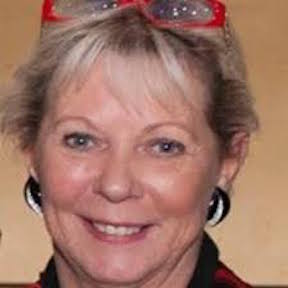
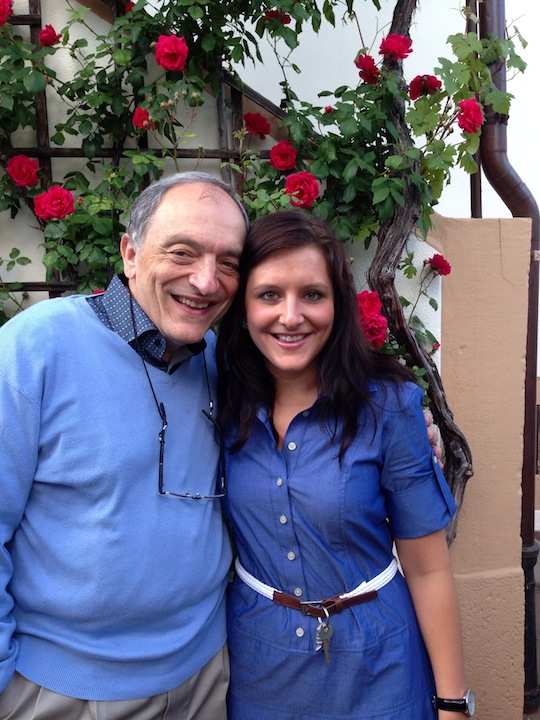
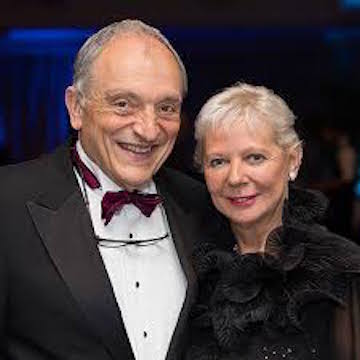
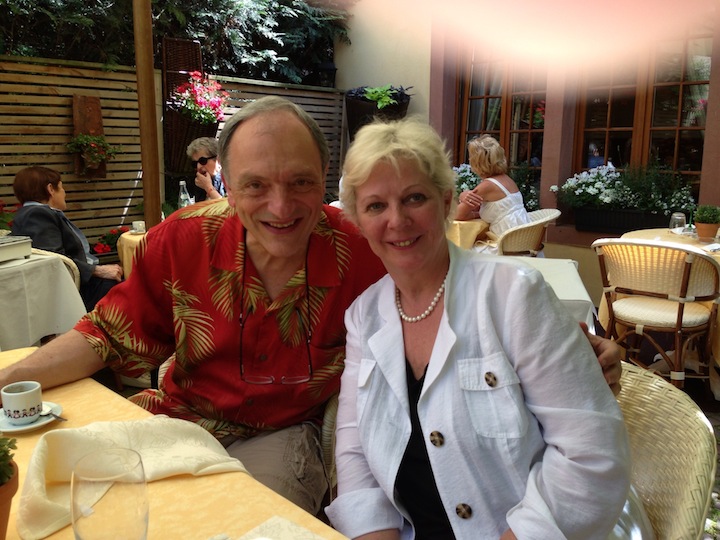









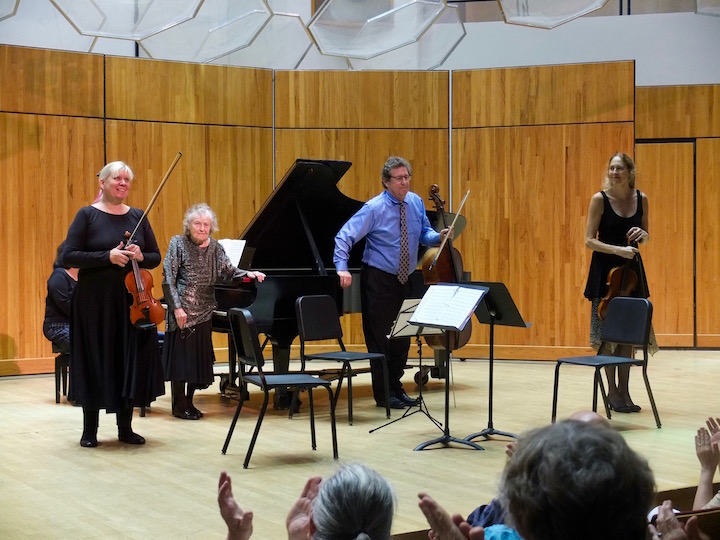
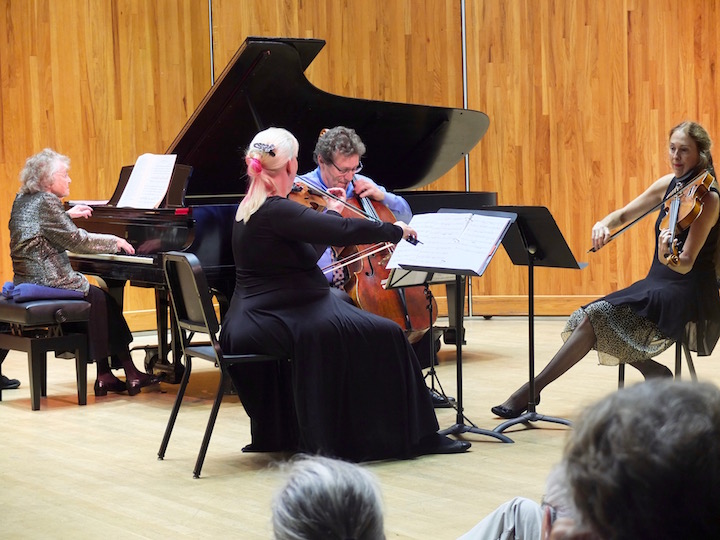
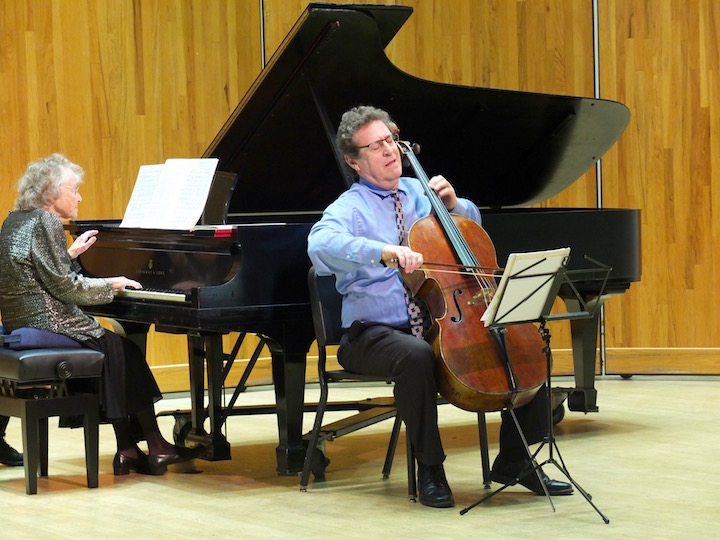
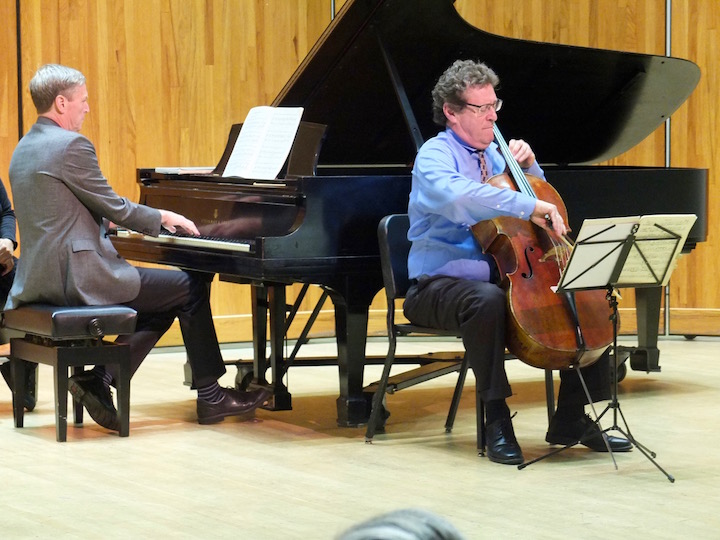

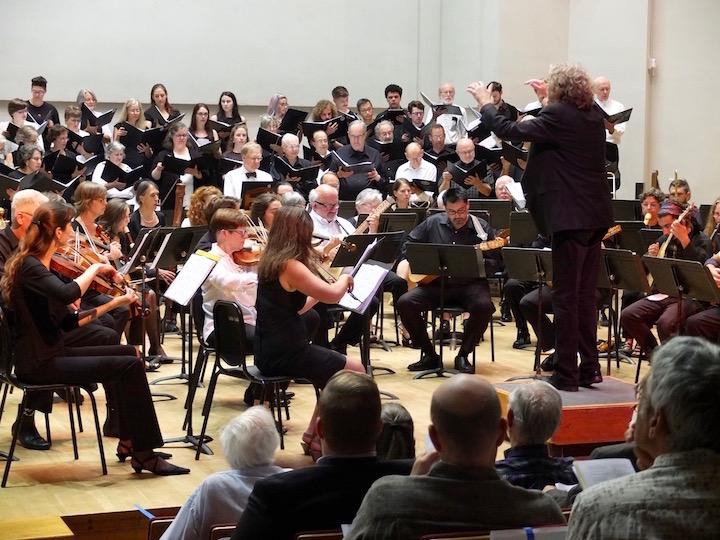





Which classical composer has helped you the most during the Covid-19 pandemic?
6 Comments
PLEASE HELP THE EAR. IF YOU LIKE A CERTAIN BLOG POST, SPREAD THE WORD. FORWARD A LINK TO IT OR, SHARE IT or TAG IT (not just “Like” it) ON FACEBOOK. Performers can use the extra exposure to draw potential audience members to an event. And you might even attract new readers and subscribers to the blog.
By Jacob Stockinger
The holidays are over and as we close in on marking a year of the coronavirus and COVID-19 pandemic, The Ear has a question:
Which composer has helped you the most to weather the pandemic so far?
The Ear wishes he could say Bach, Haydn, Mozart, Beethoven, Schubert, Chopin or Brahms. And the truth is that they all played a role, some more than others.
But The Ear was surprised by the composer whose works he most listened to and liked — Antonio Vivaldi (below), the Red Priest of Venice who lived from 1678 to 1714 and taught at a Roman Catholic girls school.
Here is more about his biography, which points out that his work was neglected for two centuries and began being rediscovered only in the early 20th-century and still continues being rediscovered to the present day: https://en.wikipedia.org/wiki/Antonio_Vivaldi
The Ear isn’t talking about popular The Four Seasons although that set of 12 solo violin concertos has its charms and originalities.
The Ear especially appreciated the lesser-known concertos for two violins and the cello concertos, although the concertos for bassoon, flute, recorder, oboe, lute, trumpet and mandolin also proved engaging, as did the concerto grosso.
It was the 20th-century composer Igor Stravinsky (below) – the modern pioneer of neo-Classicism — who complained that Vivaldi rewrote the same concerto 500 times. “Vivaldi,” Stravinsky once said, “is greatly overrated – a dull fellow who could compose the same form many times over.”
But then did anyone turn to Stravinsky – who, The Ear suspects, was secretly envious — when they needed music as medicine or therapy during the pandemic?
Vivaldi was, in fact, a master. See and hear for yourself. In the YouTube video at the bottom, you can hear a performance of Vivaldi’s Concerto Grosso in G minor, RV 535, performed by the Akademie für Alte Musik Berlin.
Why Vivaldi? You might ask.
Well, it’s nothing highbrow.
The best explanation is that Vivaldi’s music simply seems like caffeine for the ears and sunshine for the eyes. His music isn’t overly introspective or glum, and it isn’t too long or melodramatic.
The melodies and harmonies are always pleasing and energizing, and the tempi are just right, although bets are that the music is much harder to play than it sounds.
In short, Vivaldi’s extroverted music is infectious and appealing because it just keeps humming along — exactly as those of us in lockdown and isolation at home have had to do.
Happily, there are a lot of fine recordings of Vivaldi by period instrument groups from England, Italy and Germany and elsewhere that use historically informed performance practices. But some the most outstanding recordings are by modern instrument groups, which should not be overlooked.
With a few exceptions – notably Wisconsin Public Radio – you don’t get to hear much Vivaldi around here, especially in live performances, even from early music and Baroque ensembles. If you hear Vivaldi here, chances are it is The Four Seasons or the Gloria. Should there be more Vivaldi? Will we hear more Vivaldi when live concerts resume? That is a topic for another time.
In the meantime, The Ear wants to know:
Which composer did you most listen to or find most helpful throughout the pandemic?
Leave your choice in the comment section with, if possible, a YouTube link to a favorite work and an explanation about why you liked that composer and work.
The Ear wants to hear.
Thank you and Happy New Year!
Share this:
Tags: #AntonioVivaldi, #BaroqueBassoon, #BaroqueEnsemble, #BaroqueFlute, #BaroqueMusic, #BaroqueRecorder, #BassoonConcerto, #BerlinGermany, #BlogPost, #BlogPosting, #CelloConcerto, #ChoralMusic, #ChristianChurch, #ChristmasHoliday, #CircleofSound, #ConcertoGrosso, #CoronavirusPandemic, #COVID-19, #FacebookPost, #FacebookPosting, #FavoriteComposers, #FluteConcerto, #FranzJosephHaydn, #FranzSchubert, #FredericChopin, #GreatBritain, #HappyNewYear, #HistoricallyInformedPerformancePractices, #IgorStravinsky, #InstrumentalOrchestra, #ItalianBaroque, #JacobStockinger, #JohannesBrahms, #JohannSebastianBach, #LiveMusic, #LivePerformances, #LudwigVanBeethoven, #LuteConcerto, #MandolinConcerto, #ModernInstrument, #MusicTherapy, #NeglectedMusic, #NewYear's, #OboeConcerto, #OnlineConcert, #PeriodInstruments, #PresentDay, #RecordedMusic, #RecorderConcerto, #RedPriest, #RomanCatholic, #RomanCatholicism, #Self-Isolation, #Self-Quarantine, #StringMusic, #ThankYou, #TheEar, #TheFourSeasons, #TheU.K., #TrumpetConcerto, #Two-PartInvention, #UnitedKingdom, #VeniceItaly, #ViolinConcerto, #VirtualConcert, #VocalMusic, #Wikipediabiography, #Wikipediaentry, #WindMusic, #WolfgangAmadeusMozart, #YouTubevideo, 20th-century, Akademie Für Alte Musik Berlin, all, Antonio Vivaldi, appealing, Arts, audience, Bach, Baroque, Baroque music, Bassoon, bassoon concerto, Beethoven, Berlin, best, biography, blog, Brahms, caffeine, carhm, cellist, Cello, Cello Concerto, century, Chopin, choral music, Christian church, Christianity, Christmas, church, Classical music, comment, complain, composer, Concert, concerto, Concerto Grosso, conductor, coronavirus, dull, Early music, ears, energetic, energizing, energy, England, ensemble, envious, exception, explanation, extrovert, eyes, Facebook, Facebook post, Facebook posting, favorite, Fellow, flute, flute concerto, form, forward, Franz Joseph Haydn, Franz Schubert, Frédéric Chopin, girl, girls, Gloria, glum, Great Britain, group, Happy New Year, harder, harmony, Haydn, hear, help, highbrow, historically informed performance practices, Holiday, Home, hum, humming, Igor Stravinsky, infectious, instrumental music, introspective, isolation, Italian, Italian Baroque, Italy, Jacob Stockiner, Jacob Stockinger, Johann Sebastian Bach, Johannes Brahms, like, listen, live, live music, live performances, lockdown, long, lonk, Ludwig van Beethoven, lute, lute concerto, Madison, mandolin, mandolin concerto, medicine, melodramatic, melody, modern, modern instrument, Mozart, Music, music therapy, neglected, neglected music, neo-Classicism, New Year, New Year's, Oboe, oboe concerto, oboist, online, opera, Orchestra, originality, overlook, overrated, pandemic, period instruments, pioneer, play, please, pleasing, popular, post, posting, present, present day, priest, quarantine, question, recorded music, recorder, recorder concerto, recording, Red Priest, rediscover, resume, rewite, rewrote, role, Roman Catholic, Roman Catholicism, RV, same, school, Schubert, secretly, see, share, simple, solo violin, Sonata, Sound, Stravinsky, string music, Student, sunshine, symphony, tag, teach, Teacher, tempi, thank you, The Four Seasons, therapy, times, topic, Trumpet, trumpet concerto, truth, Two-Violin Concerto, Tye Ear, U.K., United Kingdom, United States, Venice, video, Viola, Violin, Violin concerto, violinist, virtual, Vivaldi, vocal music, weather, Wikipedia, wind music, wisconsin public radio, wish, Wolfgang Amadeus Mozart, work, works, year, yourself, YouTube